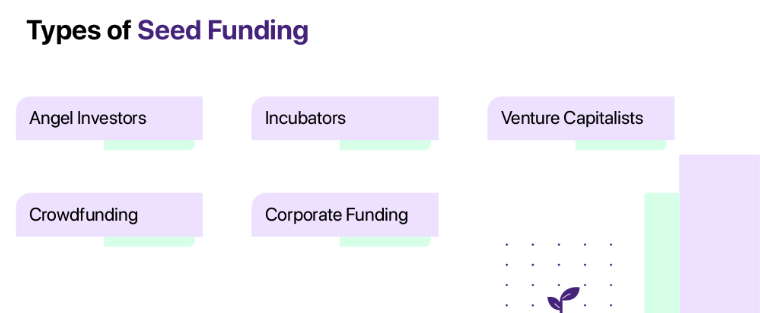Seed Investor
What is Seed Investor?
Definition:
Seed investor automation refers to the utilization of technology, artificial intelligence (AI), and machine learning (ML) to automate and optimize different stages of the seed investment process. This encompasses a range of activities, from deal sourcing and due diligence to portfolio management and exit strategies.
Analogy:
Imagine seed investor automation as a sophisticated financial assistant specifically designed for the complexities of early-stage investment. Similar to how a seasoned financial advisor would handle research, analysis, and portfolio management, seed investor automation tools take on routine investment tasks, allowing investors to focus on strategic decision-making and cultivating successful investment portfolios.
Further Description:
Seed investor automation involves integrating technology into various facets of the seed investment lifecycle, including:
Deal Sourcing: Automated systems scan through vast amounts of data, identifying potential investment opportunities, startups, and entrepreneurs that align with the investor’s criteria and preferences.
Due Diligence: Automation tools assist in the analysis of potential investments, collecting and processing relevant data to assess the viability, risks, and growth potential of startups.
Portfolio Management: Automation streamlines the tracking and management of a seed investor’s portfolio, providing real-time insights into the performance of individual investments and the overall portfolio.
Communication and Reporting: Automated communication tools keep investors informed about the status of their investments, provide updates on portfolio performance, and generate reports for comprehensive analysis.
Exit Strategies: Automation aids in the identification and execution of exit strategies, optimizing the timing and method of divesting from investments to maximize returns.
Why is Seed Investor Automation Important?
Efficiency and Precision: Automation accelerates the seed investment process, reducing the time spent on manual tasks and allowing investors to focus on strategic decision-making and relationship-building with entrepreneurs.
Data-Driven Decision Making: Seed investor automation generates valuable data and analytics, enabling investors to make informed decisions, identify emerging trends, and continuously refine investment strategies.
Risk Mitigation: Automation tools assist in conducting thorough due diligence, minimizing the risks associated with investments by providing comprehensive insights and analysis.
Optimized Portfolio Performance: Automated portfolio management ensures efficient monitoring of investments, enabling investors to quickly respond to market changes and optimize the performance of their seed investment portfolios.
Examples and Usage:
Deal Screening Platforms: These platforms leverage automation to scan through a large number of startup pitches, identifying potential investment opportunities based on predefined criteria.
Data Analytics Tools: Automated analytics tools process and analyze vast amounts of data, providing investors with insights into market trends, startup performance, and potential investment risks.
Communication Platforms: Automated communication platforms facilitate seamless interaction between investors and startups, ensuring timely updates and transparent communication throughout the investment lifecycle.
Key Takeaways:
- Seed investor automation utilizes technology to streamline and optimize various aspects of the seed investment process.
- It includes deal sourcing, due diligence, portfolio management, communication, and exit strategy optimization.
- Benefits include increased efficiency, data-driven decision-making, risk mitigation, and optimized portfolio performance.
- Examples of seed investor automation tools include deal screening platforms, data analytics tools, and communication platforms.





